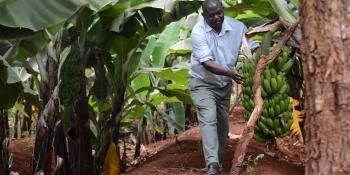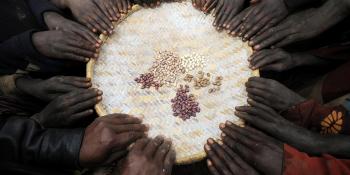Creating the needed capacity to use climate information in Ethiopia
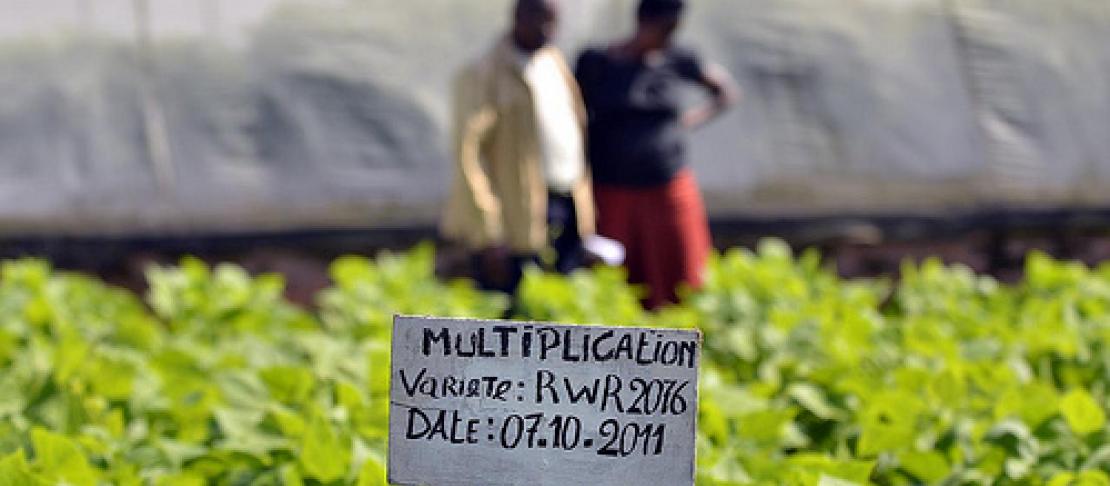
By Catherine Mungai, Andualem Shimeles and Ousmane Ndiaye
In developing countries, such as Ethiopia in East Africa, climate scenarios and climate analogues can be useful tools to identify potential ways to adapt to climatic changes. Climate analogues can also enable farmer exchange of knowledge, i.e. visiting areas that show similar climatic conditions to their future farms. In the light of this, a workshop on Using Climate Scenarios and Analogues for Designing Adaptation Strategies in Agriculture in Ethiopia was prepared, inviting stakeholders that could use the information in their everyday work. Dr. Yigardu Mulatu, from the Ethiopian Institute of Agricultural Research (EIAR), commented that “as a researcher, I have been grappling with how I can contribute towards developing and implementing climate change adaptation strategies in Ethiopia.", feeling pleased that "in the past three days, I have learned how to use available climate information to develop appropriate adaptation strategies.”
The October training workshop was organized by the CGIAR Research Program on Climate Change, Agriculture and Food Security (CCAFS) East Africa, in collaboration with EIAR as a follow-up to the regional training workshop held in early August, 2012 in Nairobi. At the end of the regional training workshop, country teams from Ethiopia, Kenya, Tanzania and Uganda developed action plans over the next six months. For Ethiopia, training of selected professionals from EIAR and the National Meteorological Agency (NMA) and universities on the applications of the climate scenarios and analogue tool was identified as priority. Consequently, 17 participants drawn from universities, research institutions, National Meteorology Agency were trained in the use of climate scenarios and analogues for designing adaptation strategies in agriculture in Ethiopia.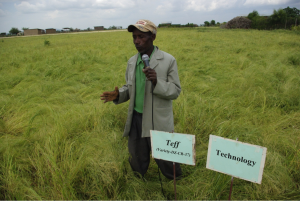
The training focused on the conceptual and practical aspects of using the online climate analogues tool. In addition, participants were trained on climate prediction and weather forecasting, climate analysis for impact studies and designing adaptation options, application of climate prediction for agriculture, the climate agriculture portals, techniques of quality assessment and downscaling. The training was led by Dr. Ousmane Ndiaye from the Meteorological Service in Senegal, working with Andualem Shimeles and Robel Takele from EIAR. Participants were divided into three working groups to reflect diversity in agricultural production systems and used the online tool to identify analogue sites for a future changing climate. The participants also reflected on the feasibility of farmer exchange visits between analogue sites and reference sites as an approach for gradually adapting agricultural systems to climate change. “The example of the farmer exchange visit in Tanzania clearly demonstrates how the analogue tool made complex issues simpler; using the analogues tool to organize farmers’ learning visits can be a great way to enable the community to develop appropriate adaptatio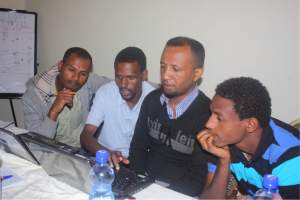 n strategies. I therefore feel that this tool will greatly enhance the research experience at EIAR.” Dr. Yigardu pointed out.
n strategies. I therefore feel that this tool will greatly enhance the research experience at EIAR.” Dr. Yigardu pointed out.
“As a lecturer at Mekelle University, I look forward to introducing the concepts learnt during the training into our university curriculum. I intend to teach the post-graduate students how they can develop adaptation strategies using GCMs and ancillary datasets,” said Mr. Atkilt Girma, one of the beneficiaries of the training. “I foresee the need to undertake similar trainings for other like-minded institutions in the country,” he added.
As a way forward, Andualem Shimeles, the Head of Biometrics, GIS and Agrometeorology Research pointed out that EIAR will take the leading role to promote and ensure that the knowledge gained on climate scenarios and analogues is used to undertake practical work on designing adaptation strategies and preparing farmers to cope with future climate. In addition, EIAR will stimulate collaboration among the different institutions represented in the training to come up with case studies on the application of the analogues tool. EIAR in collaboration with CCAFS will soon be engaged in selecting a reference site to undertake farmers’ exchange visits to enhance knowledge exchange and adaptation learning among farming communities in Ethiopia.
This blog was written by Catherine Mungai, CCAFS East Africa team, Andualem Shimeles, Head of Biometrics, GIS and Agrometeorology Research, and Ousmane Ndiaye, Meteorological Service, Senegal with contributions from Dr. Yigardu Mulatu Forestry Researcher, EIAR and Mr. Atkilt Girma, Lecturer, Mekelle University.
